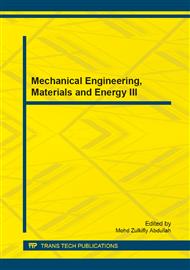p.446
p.453
p.458
p.465
p.471
p.479
p.484
p.489
p.497
Analysis on Game Behavior of Local Governments in Reverse Logistics of ELV
Abstract:
This article analysis the game relationship between local governments without cooperation or not by the game theory during the recycling process of ELV, and then get the optimal strategy choice. Results show that regional income and environmental monitoring are the important factors that affect regional game, as a result, although our country has clearly defined the responsibility of" supervision and management " to local government in the reverse logistics of ELV, this can only play a guiding significance in the process of implementation and the operability is not strong. So we should need to improve the management of special funds, strengthen financial support, adjust the national industrial development policy, establish a regional mechanism of cooperation, setting the development goals scientifically of the recycling industry of ELV, and do further refinement of local government powers and duties, so as to promote the development of recycling industry of ELV healthily.
Info:
Periodical:
Pages:
471-478
DOI:
Citation:
Online since:
December 2013
Authors:
Price:
Сopyright:
© 2014 Trans Tech Publications Ltd. All Rights Reserved
Share:
Citation:


